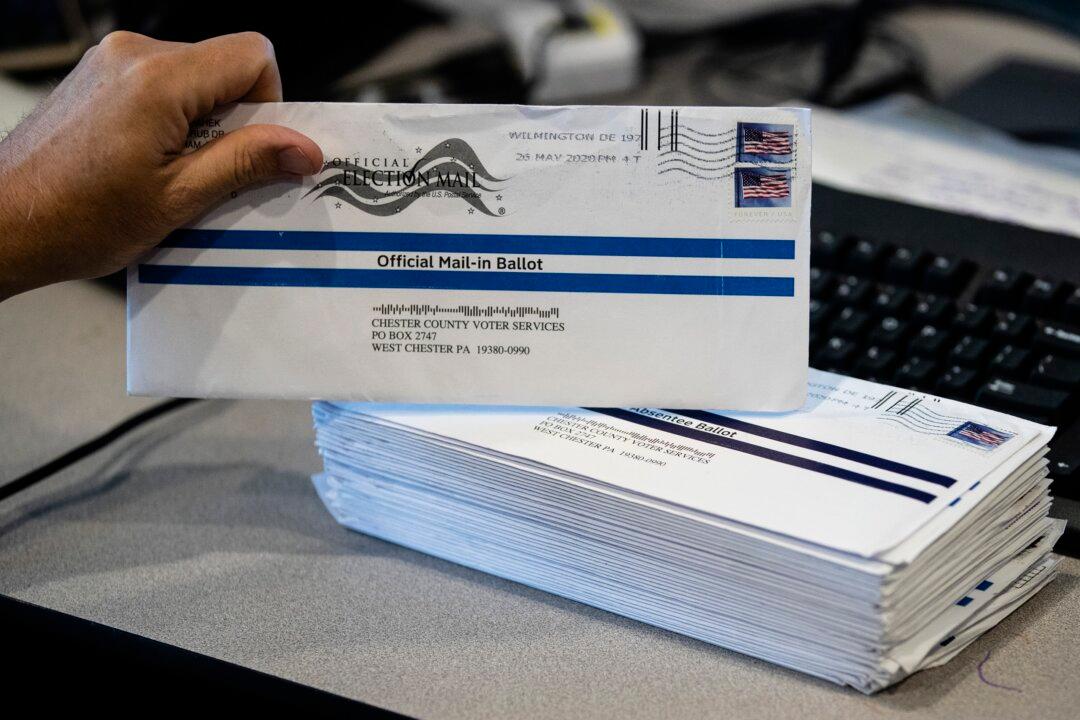Top leaders in Pennsylvania’s Republican Senate petitioned the U.S. Supreme Court on Monday to block a major state court ruling that had extended the due dates for mail-in ballots for the Nov. 3 general election.
The Pennsylvania Supreme Court ruled on Sept. 17 that election officials can accept mail-in and absentee ballots up to three days after the Nov. 3 election, granting a request from the state’s Democratic Party. Pennsylvania’s Supreme Court has a 5-2 Democratic majority.




